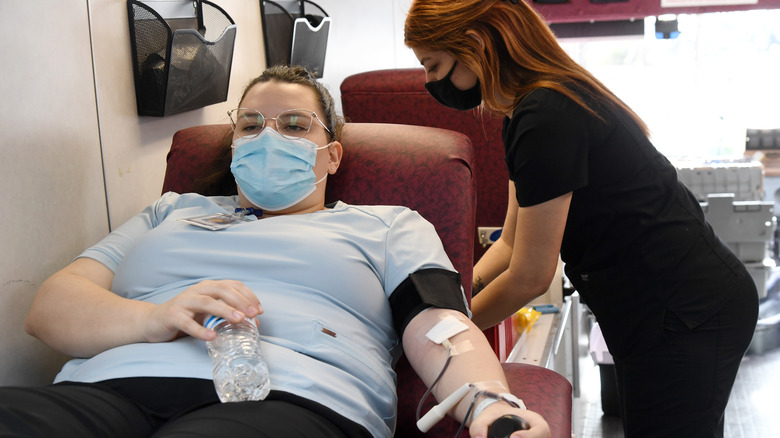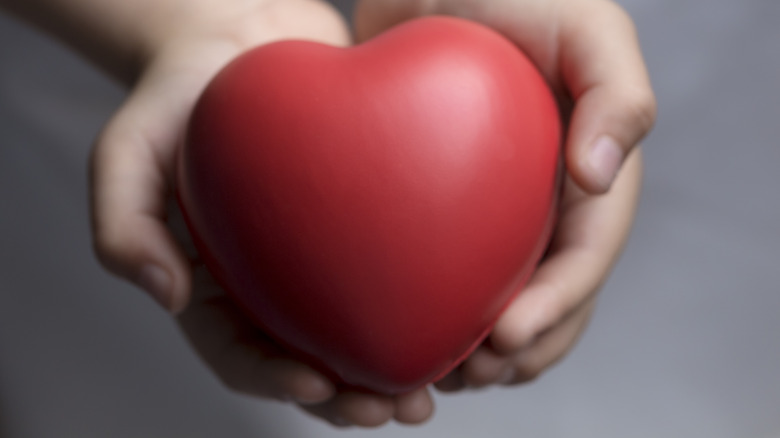What Blood Type Is The Universal Donor?
Blood type is very important when it comes to blood transfusions. If a person receives blood that is incompatible with their own, their immune system may attack and destroy the new blood cells. This reaction is serious and potentially deadly, but it is also exceedingly rare because doctors are educated about the risks of using incompatible blood types. Prior to blood transfusions, your blood will be tested to confirm your blood type. A sample of blood with a compatible type will be mixed with a sample of your own, and then observed for a reaction (per Healthline). Because of these precautions, blood transfusion is a very safe process that saves millions of lives each year, according to American Red Cross.
So which blood types are compatible?
Most people have one of four blood types: A, B, AB, and O. People with type A blood have proteins called A antigens attached to their red blood cells. Their immune systems produce antibodies against blood cells with B antigens, which means they cannot receive blood from people with blood types B and AB. Meanwhile, if you have blood type B, you have B antigens and an immune response against A antigens.
People with blood type AB have both A and B antigens, and they are only able to donate blood to other people with the same blood type, since everybody else will have an immune reaction towards the A antigens, B antigens, or both.
Blood type O negative is the universal donor
People with blood type O have neither A nor B antigens on their red blood cells, which means they are able to donate to people with any blood type. However, a protein called the Rh factor is also important when it comes to blood compatibility. People who are positive for the protein can only donate blood to other people with the protein, but can still receive blood from people who are negative for it.
For this reason, universal donors are people with O negative blood. Since their red blood cells do not contain either the A or B antigens or the Rh protein, their blood will not set off an immune reaction in any recipient. Unfortunately, the demand for O negative blood often exceeds the supply. Only 7% of people have O negative blood, but it is the only blood type that can be safely used in emergency situations when a recipient's blood type is unknown.
According to the American Red Cross, at least one American needs a blood transfusion every two seconds. With all of this in mind, people with O negative blood (or any blood type for that matter) can make a great difference by donating blood to be used by those in need, especially now that there is a severe shortage in blood supply across the nation (per New York Times).


